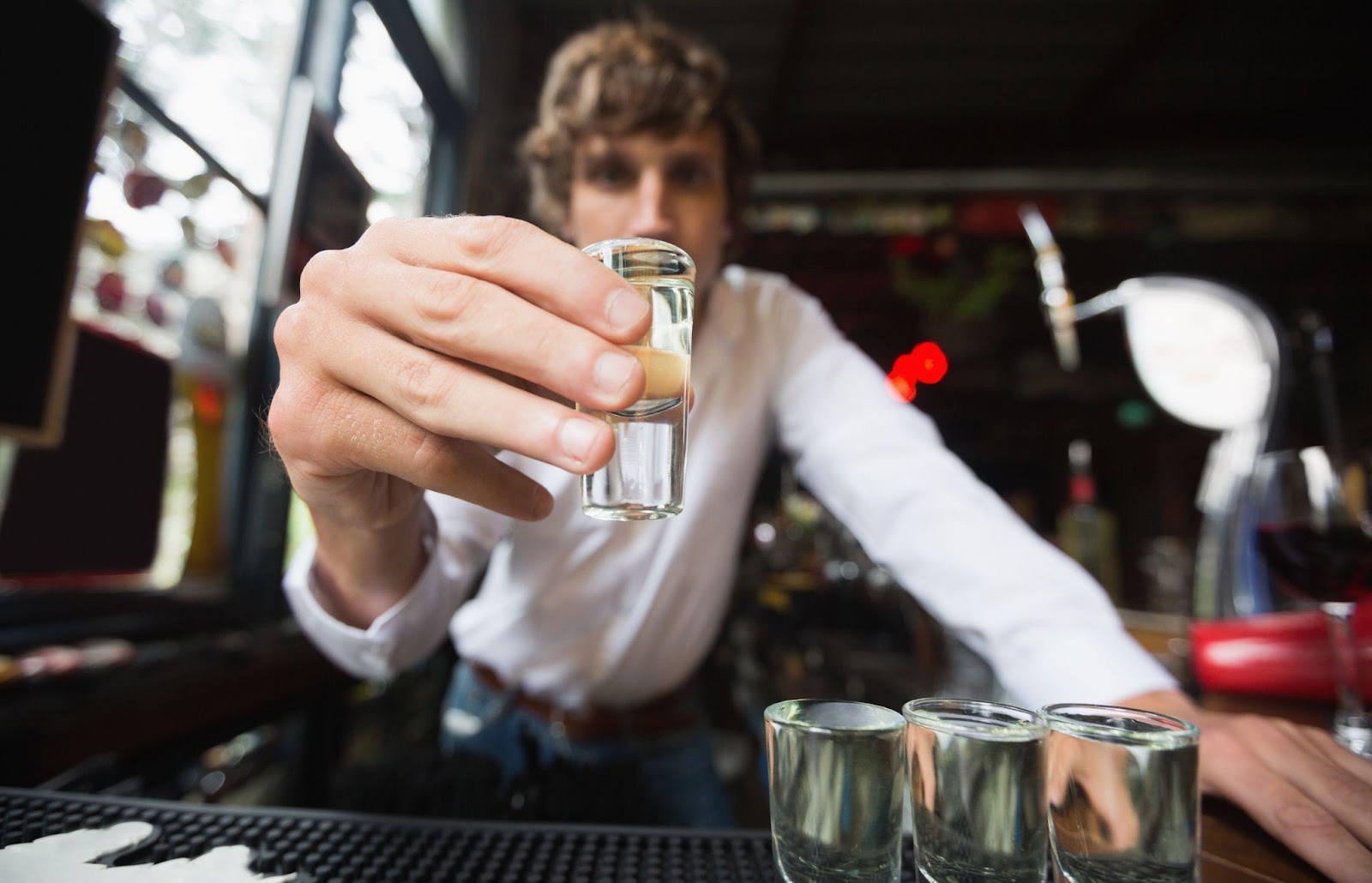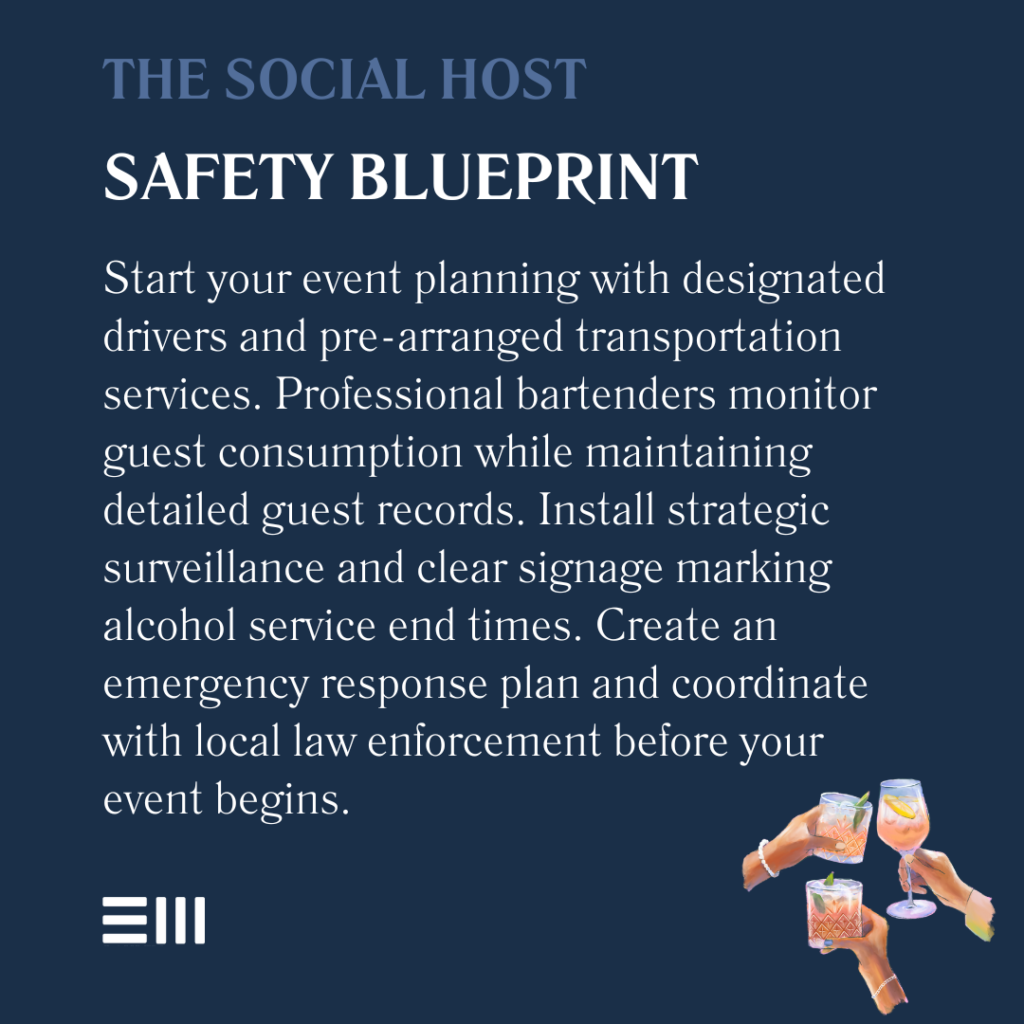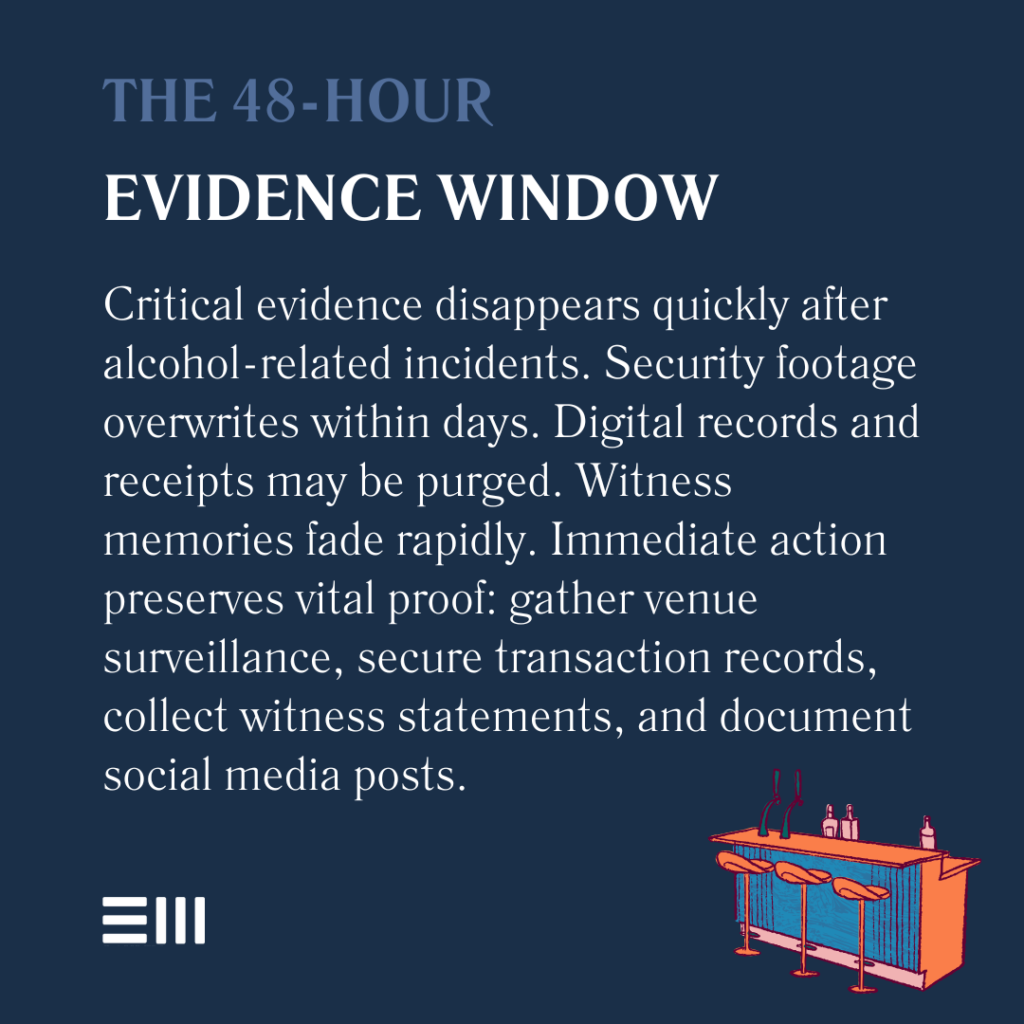
Nearly 32% of all traffic fatalities in Alabama involve alcohol-impaired driving, resulting in countless lives changed forever.
Behind many of these tragic accidents lies a complex web of responsibility that extends beyond the intoxicated driver to the businesses and individuals who served them alcohol.
Recent data shows that establishments that serve alcohol can reduce drunk driving incidents by up to 70% through proper training and adherence to service protocols.
Understanding Dram Shop Laws in Alabama
Alabama’s dram shop laws create a powerful framework for holding alcohol vendors accountable when their negligent service leads to tragedy.
These laws recognize that preventing drunk driving requires responsibility at every level, from the person pouring the drink to the establishment’s management.
The state’s approach balances business interests with public safety, creating clear guidelines for alcohol service.
- Licensed establishments must maintain specific licenses and permits;
- Staff must complete state-approved alcohol awareness training;
- Establishments must display proper signage about alcohol service;
- Regular compliance checks and inspections are required;
- Documentation of alcohol service policies must be maintained;
- Clear protocols for checking identification must be followed;
- Specific requirements for quantity and timing of alcohol service; and
- Mandatory reporting procedures for alcohol-related incidents.
These comprehensive regulations help ensure that establishments maintain high standards while serving alcohol responsibly. Businesses that fail to meet these requirements face increased liability risk and potential legal consequences.
Social Host Liability
When private individuals host events where alcohol is served, they take on significant legal responsibilities.
Social host liability in Alabama reflects the understanding that serving alcohol comes with obligations to protect both guests and the public. The law recognizes various levels of responsibility based on the event type and attendees.
Prevention Strategies for Social Hosts
Before hosting any event where alcohol will be served, hosts should implement a comprehensive safety plan.
The following strategies can help minimize risk and protect guests:
- Implement designated driver programs;
- Arrange alternative transportation options;
- Monitor guest consumption levels;
- Maintain guest lists and attendance records;
- Secure professional bartending services;
- Install surveillance systems for large events;
- Create emergency response plans; and
- Establish clear end times for alcohol service.
These preventive measures form the foundation of responsible hosting and can significantly reduce the likelihood of alcohol-related incidents.

Risk Management Considerations
To properly protect themselves and their guests, hosts should consider several key risk management factors.
Here are essential steps to take:
- Obtain special event insurance coverage;
- Document safety measures implemented;
- Keep records of all alcohol purchases;
- Maintain guest sign-in procedures;
- Create incident reporting systems;
- Establish coordination with local law enforcement;
- Develop crisis management protocols; and
- Regular safety assessments of the venue.
Taking these precautions demonstrates a commitment to guest safety and can provide crucial protection in the event of legal challenges.
Evidence Collection and Documentation
Building a strong dram shop or social host liability case requires thorough documentation and evidence gathering.
Success often depends on acting quickly to preserve crucial information. The following comprehensive evidence-collection strategy helps establish liability and damages.
Physical Evidence
Successful cases often depend on gathering tangible evidence immediately after an incident. Here are the critical pieces of physical evidence to collect:
- Security camera footage from multiple angles;
- Point-of-sale transaction records;
- Credit card receipts and statements;
- Employee time cards and schedules;
- Training certification records;
- Maintenance and cleaning logs;
- Property inspection reports; and
- Incident report documentation.
This physical evidence provides the foundation for establishing liability and proving damages in court.
Testimonial Evidence
Witness accounts and expert testimony play a crucial role in strengthening dram shop liability cases. The following sources of testimonial evidence should be secured:
- Witness statements from patrons;
- Employee testimonies about service practices;
- Expert opinions on industry standards;
- Law enforcement officer statements;
- Medical professional assessments;
- First responder observations;
- Character witness testimonies; and
- Expert accident reconstructionist reports.
These testimonies help create a complete picture of the events leading to the incident and its aftermath.
Digital Evidence
In today’s connected world, digital evidence can provide crucial insights into the circumstances surrounding an incident.
Key digital evidence includes:
- Social media posts and check-ins;
- Text messages and communications;
- GPS and location data;
- Phone records and timestamps;
- Digital payment transactions;
- Security system logs;
- Email communications; and
- Surveillance system backups.
This digital footprint often provides time-stamped proof of events and behaviors that might otherwise be difficult to establish.

Damages and Compensation
Understanding the types of damages available helps victims pursue appropriate compensation. Alabama law recognizes various categories of damages in dram shop cases.
Economic Damages
Victims of drunk driving accidents often face substantial financial burdens. These economic damages typically include:
- Medical expenses and ongoing care;
- Lost wages and future earnings;
- Property damage and replacement costs;
- Rehabilitation and therapy expenses;
- Transportation and accommodation costs;
- Home modification expenses;
- Professional care services; and
- Educational and vocational training.
The full extent of these economic damages must be carefully calculated to ensure adequate compensation for both current and future needs.
Non-Economic Damages
Beyond financial losses, victims often suffer significant personal impacts that deserve compensation.
These non-economic damages include:
- Pain and suffering compensation;
- Emotional distress recognition;
- Loss of companionship claims;
- Quality of life impact;
- Mental anguish consideration;
- Loss of consortium;
- Permanent disability adjustments; and
- Disfigurement compensation.
While more challenging to quantify, these damages often represent the most profound impacts on victims’ lives and require careful documentation and presentation.
Frequently Asked Questions About Drunk Driving in Alabama
Understanding dram shop and social host liability can be complex.
Here are detailed answers to common questions that arise during these cases.
What’s the Time Limit for Filing a Dram Shop Claim in Alabama?
In Alabama, victims typically have two years from the date of the incident to file a dram shop liability claim. However, certain circumstances may affect this timeline, including cases involving minors or government entities.
How Do You Prove an Establishment Served Someone Who Was Visibly Intoxicated?
Evidence can include security footage showing physical signs of intoxication, witness statements about behavior, receipts demonstrating the quantity and timing of drinks served, blood alcohol content tests, and expert testimony about visible signs of intoxication.
Can a Social Host Be Held Liable if They Didn’t Directly Serve the Alcohol?
Yes, in certain circumstances. Social hosts may be liable if they knew or should have known that alcohol was being served to minors or visibly intoxicated persons on their property. This includes situations where hosts fail to take reasonable steps to prevent unauthorized alcohol service.
What Types of Compensation Are Available in Dram Shop Cases?
Victims may recover comprehensive damages, including immediate and future medical expenses, lost wages and earning capacity, pain and suffering, property damage, and, in cases of particularly egregious conduct, punitive damages meant to deter future negligent service.
Does Insurance Cover Social Host Liability?
Standard homeowner’s insurance policies may provide some coverage for social host liability, but coverage limits and exclusions vary significantly. Hosts should carefully review their policies and consider supplemental coverage for events where alcohol will be served.
Protect Your Rights Today
Every day spent waiting could impact your ability to recover compensation and hold responsible parties accountable.
Our experienced dram shop liability attorneys understand the complexities of these cases and can help protect your legal rights.
Can't find what you're looking for? Search our site below.










